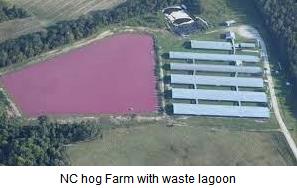 The Supreme Court of North Carolina declined to hear a challenge to the Right to Farm Act enacted in 2018. A number of environmentally active and community groups filed challenge to the law in 2019 following enactment of the respective House Bill 467 and Senate Bill 711, over a veto by the Governor. The plaintiffs argued that unreasonable restrictions on nuisance associated with CAFOs are unconstitutional and deprive property owners of their rights, including a trial by jury.
The Supreme Court of North Carolina declined to hear a challenge to the Right to Farm Act enacted in 2018. A number of environmentally active and community groups filed challenge to the law in 2019 following enactment of the respective House Bill 467 and Senate Bill 711, over a veto by the Governor. The plaintiffs argued that unreasonable restrictions on nuisance associated with CAFOs are unconstitutional and deprive property owners of their rights, including a trial by jury.
In North Carolina, as in a number of other states, nuisance associated with either agricultural or industrial operations has become a civil rights issue. The Civil Rights Compliance Office of the Environmental Protection Agency has advised a number of state environmental quality agencies including that of North Carolina that minority residents subjected to nuisance violates Title VI of the Civil Rights Act and is therefore discriminatory.
The Right to Farm Act was expedited in advance of a series of lawsuits alleging nuisance since jurors had found for the plaintiffs against the defendant, Smithfield Foods in early cases. The consortium of environmental and social activists sued Smithfield Foods the integrator, rather than individual farmers under contract supplying processing plants in North Carolina.
 Given the resources of the environmental groups opposed to CAFOs, the constitutionality of the law may be revisited in a federal court.
Given the resources of the environmental groups opposed to CAFOs, the constitutionality of the law may be revisited in a federal court.